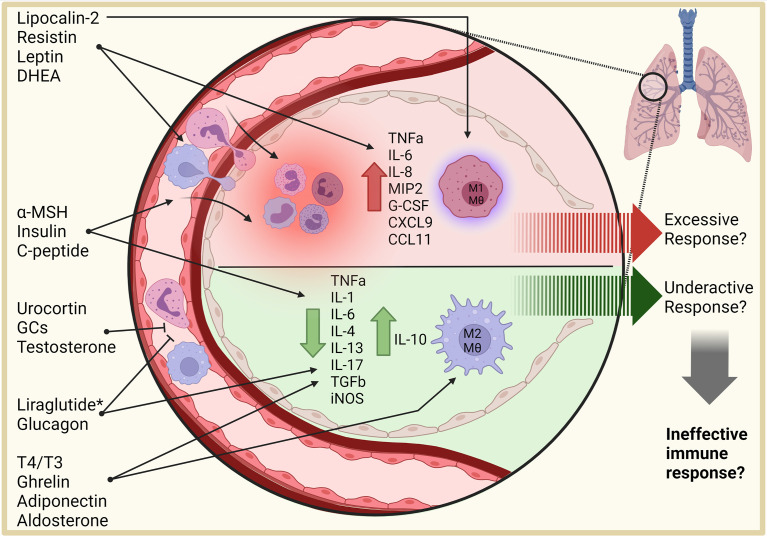Figure 1.
Effects of hormones on the lung environment. Hormones influence inflammatory responses, necessitating a clear understanding of their role in infectious disease. Pro-inflammatory adipokines, such as resistin, leptin, lipocalin-2, and DHEA collectively stimulate migration of immune cells into the lung and promote a pro-inflammatory signaling environment, with lipocalin-2 stimulating macrophage activation and M1 polarization. Anti-inflammatory hormones, including glucocorticoids, testosterone, glucagon, thyroxine, ghrelin, adiponectin, and aldosterone, reduce inflammatory signaling, immune cell recruitment, and polarize macrophages to anti-inflammatory phenotypes. Whether these combined effects are beneficial or detrimental to infectious disease response in the lung require further investigation. Additionally, agonists and antagonists (*) provide a future opportunity to regulate these processes. DHEA, dehydroepiandrosterone; α-MSH, alpha-melanocyte-stimulating hormone; T4, Thyroxine; T3, triiodothyronine; Mθ, macrophage. This figure was created with BioRender.com.

